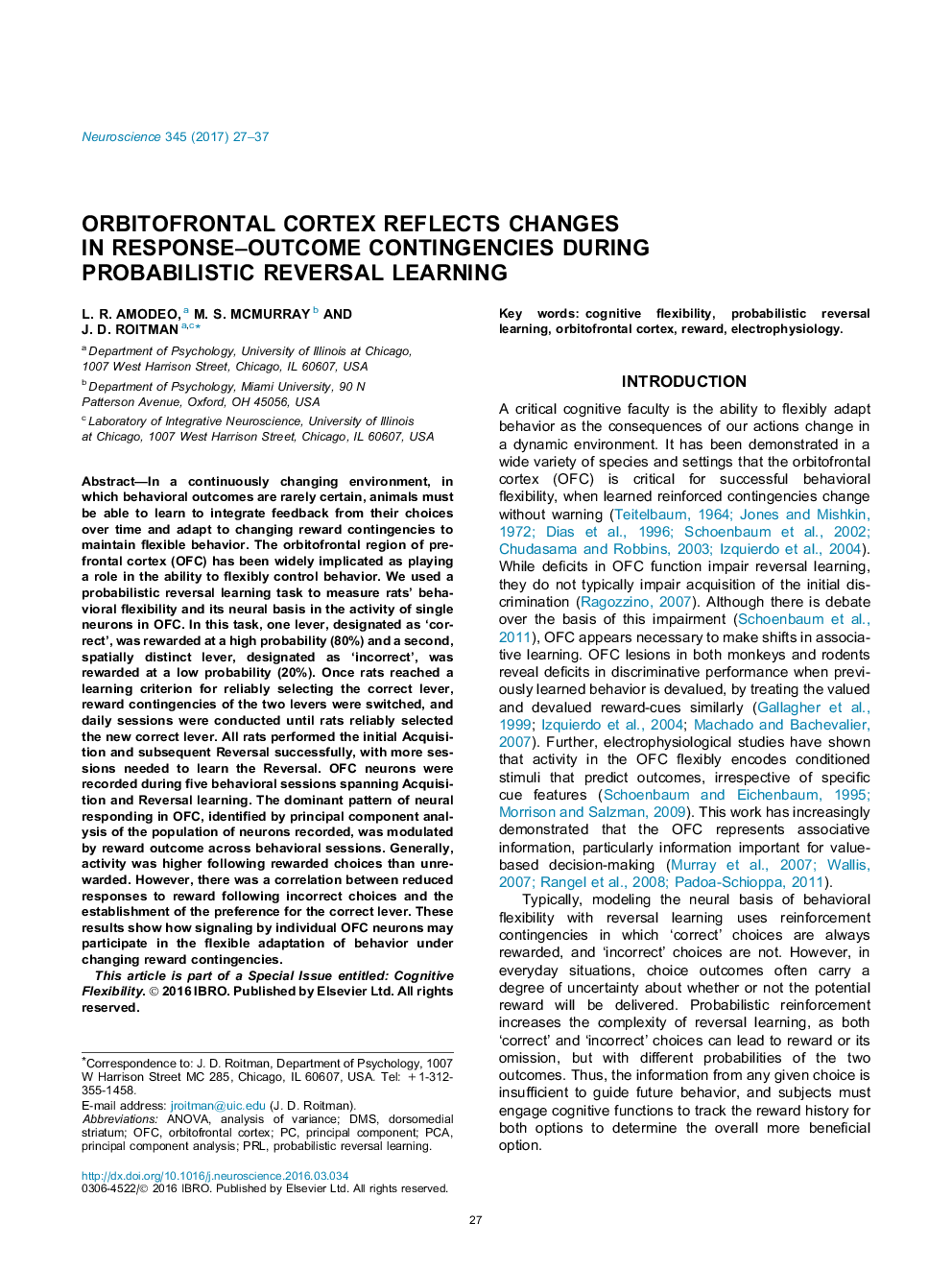| کد مقاله | کد نشریه | سال انتشار | مقاله انگلیسی | نسخه تمام متن |
|---|---|---|---|---|
| 5737989 | 1614731 | 2017 | 11 صفحه PDF | دانلود رایگان |
- Rats tracked rewards in a probabilistic reversal learning task.
- One population of OFC neurons discriminated reward outcomes.
- Neurons responded with elevated activity to high-probability rewards.
- As rats learned to avoid the low-probability option, reward responses diminished.
In a continuously changing environment, in which behavioral outcomes are rarely certain, animals must be able to learn to integrate feedback from their choices over time and adapt to changing reward contingencies to maintain flexible behavior. The orbitofrontal region of prefrontal cortex (OFC) has been widely implicated as playing a role in the ability to flexibly control behavior. We used a probabilistic reversal learning task to measure rats' behavioral flexibility and its neural basis in the activity of single neurons in OFC. In this task, one lever, designated as 'correct', was rewarded at a high probability (80%) and a second, spatially distinct lever, designated as 'incorrect', was rewarded at a low probability (20%). Once rats reached a learning criterion for reliably selecting the correct lever, reward contingencies of the two levers were switched, and daily sessions were conducted until rats reliably selected the new correct lever. All rats performed the initial Acquisition and subsequent Reversal successfully, with more sessions needed to learn the Reversal. OFC neurons were recorded during five behavioral sessions spanning Acquisition and Reversal learning. The dominant pattern of neural responding in OFC, identified by principal component analysis of the population of neurons recorded, was modulated by reward outcome across behavioral sessions. Generally, activity was higher following rewarded choices than unrewarded. However, there was a correlation between reduced responses to reward following incorrect choices and the establishment of the preference for the correct lever. These results show how signaling by individual OFC neurons may participate in the flexible adaptation of behavior under changing reward contingencies.
Journal: Neuroscience - Volume 345, 14 March 2017, Pages 27-37
